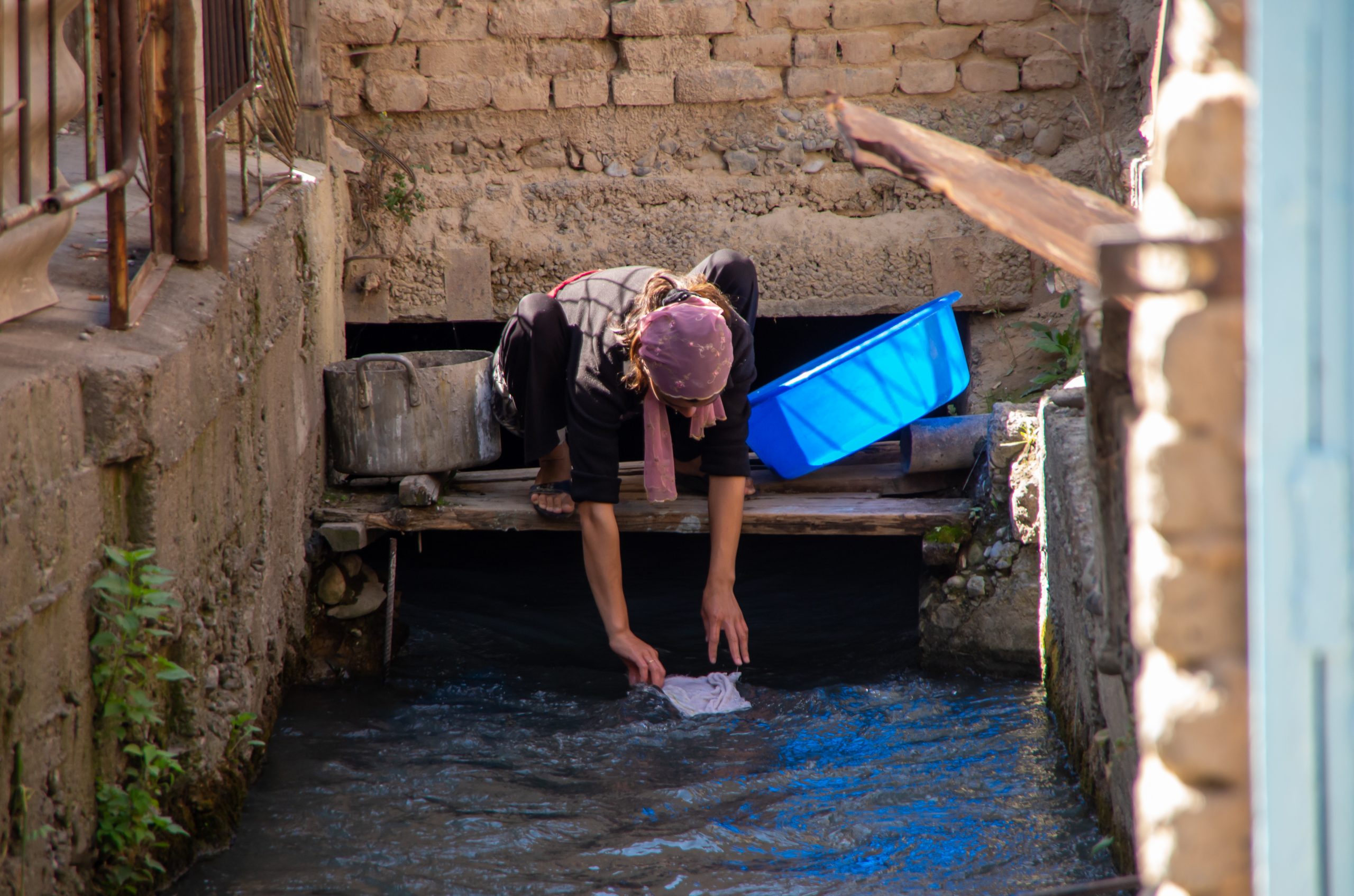“Kelinism” in Kyrgyzstan: Women’s Rights Versus Traditional Values
In traditional steppe society, nomadic Kyrgyz daughter-in-laws, known as “Kelins,” had to make a good impression on their new families – even to the point of exploitation. Even after decades of Soviet urbanization and, often brutal, social reengineering, these young Kyrgyz women continued to be repressed.
While the definition of “kelin” remains contested, it generally refers to a newly married woman who has just moved into her husband’s family home. Usually with tacit subordination, she must perform certain duties such as cleaning the house, cooking, looking after children, upholding the household’s honor, and never contradicting the family. As a rule, a kelin is the lowest rank of the household, and must seek permission – normally from her mother-in-law or husband – before leaving the house or visiting others. In rural areas of Kyrgyzstan, young kelins may be forbidden from wearing modern clothes or from having their own mobile phones.
Today, kelinism vividly encapsulates the secondary status of women in Kyrgyzstan. In many cases, especially in rural areas, girls do not marry of their own accord. The decision is usually made between parents or through acts of coercion against women such as ala kachuu (bride kidnapping).
At its worst, kelinism is nothing short of slavery and institutionalised domestic abuse. In one video recently posted online, a young woman tells the story of the time her partner beat her while her mother-in-law stood by and assured her that it was for her own good. This case is unusual in its publicity – the vast majority of kelins self-censor, seeing publicity as a sign of dishonor toward their families. But the case spoke to the common themes of resentment, which can have tragic consequences. In 2017, a young woman in Osh decapitated her mother-in-law after suffering similar abuse.
A kelin can also be humiliated by her other relatives, including their future husband’s sister, who can exploit their labour, or their brother-in-law, who can mistreat or even use force. Data from previous years show that almost half of Kyrgyzstani daughters-in-law (45%) have experienced systematic physical or psychological abuse from their partner’s relatives.
Across Central Asia, “Kelinism is slavery” is gaining prominence as a leading motto of the feminist movement. Kyrgyzstan, followed by Kazakhstan, became the first Central Asian state to hold Solidarity Marches from 2016 in support of women’s rights, even though such efforts were often criticized or even forcefully interrupted. Alongside marches, art festivals such as Feminale are trying to raise awareness about the mistreatment young women face in society.
Public awareness is vital in addressing the problems associated with kelinism. Indeed, ignorance of their rights, financial dependence, and low education among women are the leading causes of violence and mistreatment. To improve their standing, quality education and even the education of their families on women’s rights should be emphasized. From a legal standpoint, education campaigns should highlight the importance of the 2017 Law on the Protection and Defense against Domestic Violence. The Law establishes measures to protect victims of domestic violence, covering not only physical, but psychological and even economic abuse. Furthermore, the Law requires police to issue protection orders and register a domestic violence complaint not only from the victim, but from anyone who chooses to report it. This provision highlights the relevance of intervention by the bride’s own family.
Apart from hotlines and online platforms, major assistance to victims of domestic violence is provided by crisis centers with support from international organizations such as the UN and USAID. They provide psychological, medical, and legal advice for victims of domestic abuse and supply temporary “safe places” for women who have experienced violence and their children. Crisis centers are considered the only structure that inspires trust in victims of domestic violence and provides them with real assistance. However, these units often suffered from a lack of financial and human resources: there are 15 non-state crisis organizations in Kyrgyzstan, and only two of them can provide shelter. This means that the government should provide closer cooperation and financial support to such centers and other organizations that help them to respond more efficiently to violations of women’s rights.
It is encouraging that civil society has begun to draw more attention to the persistence of violence against women in Kyrgyzstan. For several years, the annual women’s rights rally on March 8 has served as a source of empowerment, with slogans such as “Pouring tea is not a wife’s duty” featuring prominently. Nevertheless, a large segment of Kyrgyz society considers such movements a threat to national tradition. Today, the mission of any traditional society is to think critically in the application of traditions and focus more on those that have deep meaning and contribute to the wellbeing of their people, not to their detriment.
Asylai Akisheva is a PhD candidate at Koç University Law School in Turkey. Her research focuses on gender issues and the law. Follow her on Twitter @Asylai_Akisheva

